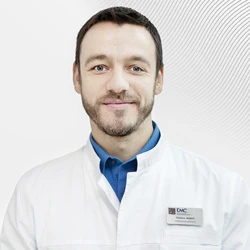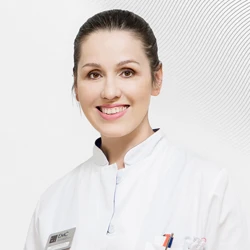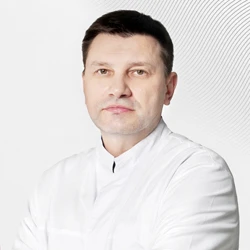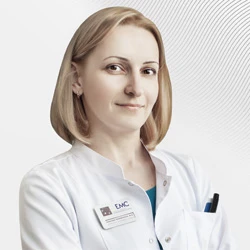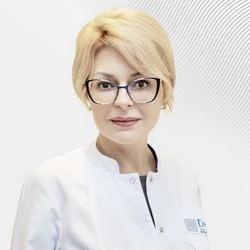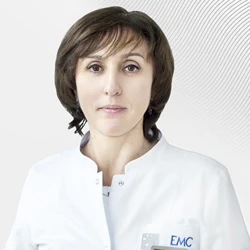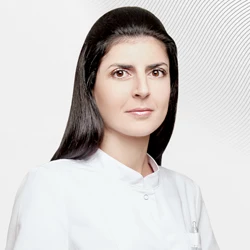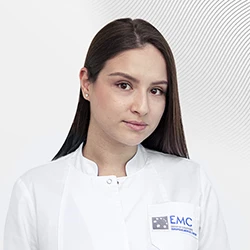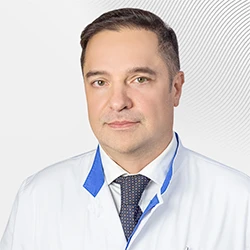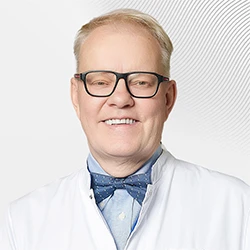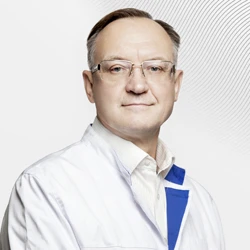Colonoscopy is the most effective method of early diagnosis of colorectal cancer. This is a procedure during which an endoscopist visually assesses the condition of the inner surface of the colon throughout its entire length using a special probe (endoscope), and if a pathological formation is detected, performs a biopsy or removes it. Most patients, as a rule, are not enthusiastic about the doctor's suggestion to undergo a colonoscopy, guided by personal experience or the opinion of friends about how unpleasant any endoscopic probe examination is (гастроскопия, colonoscopy, rectoromanoscopy). Basically, during colonoscopy, patients experience discomfort caused by the colonoscope moving inside the intestine. In addition, there are people for whom this procedure is especially painful due to the inflammatory process in the intestines, the presence of adhesions in the abdominal cavity, or because of the low threshold of pain sensitivity. For them, soreness occurs already at the stage of filling the intestines with air, which is carried out to straighten the intestines in order to ensure better visibility. Therefore, in the EMC Endoscopic Department, where the comfort and safety of patients are taken care of, any endoscopic examination, including colonoscopy, is performed under intravenous sedation.
Modern possibilities of early diagnosis — screening studies — make it possible to detect precancerous bowel disease or cancer at an early stage.
Not only in Russia, but all over the world, statistics show a steady increase in newly diagnosed cases of colon and rectal cancer (colorectal cancer). The effectiveness of its treatment depends on the stage at which the pathology was detected. The high mortality rate in the first year of life after diagnosis is due to the fact that more than 70% of patients with colon cancer and more than 60% of patients with rectal cancer have advanced forms of the disease at the first visit to a doctor. Meanwhile, modern opportunities for early diagnosis — screening studies — make it possible to detect precancerous bowel disease or cancer at an early stage.
Screening is the active identification of people with cancer risk factors or asymptomatic cancer through special diagnostic tests. It has been established that colorectal cancer most often develops as a result of the degeneration of polyps, benign formations in which the glandular epithelium grows. The larger the size of the polyp, the more likely it is that the polyp can develop into cancer. The number of polyps also affects the prognosis of the disease — single polyps become malignant less often than multiple ones. Therefore, modern doctors adhere to radical tactics in relation to colon polyps: when a polyp is found, it is removed and sent for histological examination, which will determine whether it is benign or malignant.
Sedation is a state of superficial drug—induced sleep, which is achieved by using drugs with a short period of action.: The patient sleeps during the procedure, but wakes up quickly at the end of the examination. It is psychologically easier for patients to prepare for an examination if they are confident that the procedure will be painless, and it is easier for a doctor to perform manipulations if he knows that he does not cause pain to the patient. As with conventional anesthesia, the question of the possibility of conducting a study under sedation is decided for each patient individually, taking into account contraindications and possible risks.
Colonoscopy is considered one of the most effective and reliable screening studies in oncology and is included in government cancer prevention programs in many countries. The active position of doctors in the United States regarding the early diagnosis of polyps and the prevention of malignant tumors of the colon and rectum has led to a slowdown in the incidence of colorectal cancer in the United States. Therefore, doctors at the EMC Coloproctology Clinic recommend that all patients over the age of 50 undergo a colonoscopy, even in the absence of symptoms of the disease, since the risk of colon cancer increases significantly from this age on. Patients who experience blood discharge during defecation, abdominal pain, and a feeling of a foreign body in the anus should undergo an examination regardless of age. The use of short—term sedation makes colonoscopy a procedure after which the patient will not have any unpleasant memories — only the confidence that a significant contribution has been made to the prevention of intestinal diseases, and in general to a healthy future.
You can make an appointment for a consultation with the specialists of the EMC Coloproctology Clinic by phone (495) 933 66 55
Was this information helpful?
Ask a Question
Institute of Oncology
Get a consultation
Timely consultation to prevent negative consequences for your health
The leading European multidisciplinary clinic
We work at the level of the best international standards, introducing and developing advanced treatment methods
600
world-renowned
doctors
doctors
57
treatment
options
options
36
years taking care
of your health
of your health
24/7
we work
at any
convenient time
at any
convenient time

ICI INTERNATIONAL QUALITY CERTIFICATES ISSUING SERVICES LLC
International accreditation

Joint Commission International
International accreditation 2018, 2021

Luxury Lifestyle Awards
Best International Private Group of Companies (hospitals) in the Luxury category

International Hospital Federation
Member of the International Hospital Federation
Reviews
Anonymous,
City: -
Super nice
Same as 1st visit Welcome and Secretary were super nice Doctor Abdulin
was great and super pro.
Clinic:
Institute of Oncology
Doctor:
Iskander Abdullin
3 July 2025
Anonymous user Name,
City: -
I wish you all good health and professional success
Many thanks to the doctors Moskalets E. R. and Penkova O. V., who described
my pictures on the day of the study, as well as to the staff of the PET CT department Nikolay, nurse Ekaterina, laboratory assistants Eduard and Nikolay, who were with me from the beginning and until the
end of the study, we worked in a coordinated, professional and friendly manner.
... more
Clinic:
Institute of Oncology
Doctor:
Elina Moskalets
26 March 2025
Konstantin Vladimirovich,
City: -
I express my gratitude for the treatment!
He came back with severe pain in the neck. The diagnosis revealed an intervertebral
hernia. The very next day, the operation was carried out, everything was very fast. After the operation, he was surrounded by nurses. I would especially like to express my gratitude to:
Krivoshapkin Alexey Leonidovich, Yulia Markina, Vladimir Klimov, Orkhan Abdullayev, Gleb Sergeevich Sergeev, and Alexander Loginov.
... more
Clinic:
Institute of Oncology , Neurosurgery Clinic
Doctor:
Krivoshapkin Alexey
16 March 2025
Anonymous user Name,
City: -
We thank all the staff of the clinic for saving our lives
We thank Alexey Leonidovich Krivoshapkin, Alexey Sergeevich Gaitan, Orkhan
Abdullayev and all the clinic staff for saving our lives.
Clinic:
Institute of Oncology , Neurosurgery Clinic
Doctor:
Krivoshapkin Alexey
7 March 2025
Anonymous user Name,
City: -
Endless gratitude
Endless thanks to my dear Dr. Pavel Koposov.
Clinic:
Institute of Oncology
Doctor:
Pavel Koposov
4 March 2025
Vladimir,
City: Yessentuki
About surgeon Ruchkin D. V.
Dmitry Ruchkin is the epitome of the highest professionalism , dedication,
modesty and dedication to his work. His method of gastroectomy is unique, allowing you to eat and live a full life after a complex operation. A low bow to him and the surgeon Jan to Maria Nikolaevna —
members of his team.
... more
Clinic:
Institute of Oncology
Doctor:
Dmitry Ruchkin
12 February 2025
Anonymous user Name,
City: -
Thank you to all the clinic staff!!!
All employees throughout the chain from reception to the end of the procedure
were very kind and attentive. I would like to express my gratitude to all of you, and I would like to especially mention doctor Ilya E. Loiko for his kind words and wishes. Thank you to all the clinic
staff!!!
... more
Clinic:
Institute of Oncology
Doctor:
Ilya Loyko
24 January 2025
S. V. Firmanov,
City: -
Gratitude from the patient
Many thanks to all the staff of the clinic, especially Pavel Koposov.
Clinic:
Institute of Oncology
Doctor:
Pavel Koposov
16 January 2025
Anonymous user Name,
City: -
Many thanks to the professional in his field
Thank you to the team of the Center for Radionuclide Diagnostics for their
well-coordinated, productive work and good mood during the preparation and conduct of the study. And, of course, a huge thank you to the professional in his field, Dr. Borzyanitsa. Happy New Year Happy New
year to the entire EMC team!
... more
Clinic:
Institute of Oncology
Doctor:
Stanislav Borzyanitsa
25 December 2024
Anonymous user Name,
City: -
Gratitude
Sincere thanks to Dr. Vasilyeva.
Clinic:
Institute of Oncology
Doctor:
Irina Vasilieva
12 December 2024
Anonymous user Name,
City: -
Thank you all very much from me and my family
Many thanks and best wishes from the bottom of my heart: Zhao V. A., Yuldashev
A. G., Vakhabova Yu. V., Zhizhko N. V. specialists from GOD. The medical staff is beyond praise.
Clinic:
Institute of Oncology
Doctor:
Anvar Iuldashev
12 December 2024
Anonymous user Name,
City: -
Thank you very much
Many thanks to Iskander Abdullin, the staff of the Center for Radiation
Diagnostics.
Clinic:
Institute of Oncology
Doctor:
Iskander Abdullin
11 December 2024
Anonymous user Name,
City: -
You can trust such professionals
The most important thing is care and tact at all stages of visiting the
clinic and, as a conclusion, professionalism of the highest level Dr. Irina Vasilyeva, who surprisingly combines knowledge, skills, experience, and sensitivity and empathy.
Clinic:
Institute of Oncology , Breast Clinic
Doctor:
Irina Vasilieva
9 December 2024
Anonymous user Name,
City: -
Gratitude to the doctor
Thanks to the doctor Vakhabova Julia Vyacheslavovna, she blessed me for
6 months...
Clinic:
Institute of Oncology
Doctor:
Yuliya Vakhabova
28 November 2024
Anonymous user Name,
City: -
I express my deep gratitude to the specialists of the highest class
I would like to express my deep gratitude to the top-class specialists,
Professor Yevgeny Libson, Director of the Cancer Center Salim Nidal, and Ilya Yevgenyevich Loiko for my essentially "salvation", for the extremely kind and sincere attitude.
Clinic:
Institute of Oncology
Doctor:
Evgeniy Libson (Israel)
26 November 2024
Anonymous user Name,
City: -
I got ALL my questions answered
I was at the consultation of Professor Vsevolod Borisovich Matveev... I
got ALL my questions answered... And even more...In a word-not a man, but a HUMAN BEING...!!! The staff is friendly, answers all questions, helps, etc... People with health problems come in...They all have no
time for this or that...Employees understand all this and make their stay in the clinic as comfortable as possible...
... more
Clinic:
Institute of Oncology , Urology Clinic
Doctor:
Vsevolod Matveev
22 November 2024
Popov Khariton,
City: -
Thank you very much
Many thanks to Iskander Abdullin, Alexey Krivoshapkin, Natalia Zharinova,
Elmira Sultanova, Alla Artamonova and all the staff of the clinic who helped me and my children.
Clinic:
Institute of Oncology
Doctor:
Iskander Abdullin
20 November 2024
Anonymous user Name,
City: -
Words of gratitude to A. L. Krivoshapkin
Special thanks to Professor A. L. Krivoshapkin for the online consultation.
And I want to thank the girl operator who helped me with installing the app for the conference.
Clinic:
Institute of Oncology , Neurosurgery Clinic
Doctor:
Krivoshapkin Alexey
31 October 2024
Anonymous user Name,
City: -
Thanks!
The EMS clinic was contacted on the recommendation of a friend of my husband.
Thank you for your cordiality, care, and attention from the first visit to the clinic, starting with the staff meeting in the lobby, reception, and further support throughout the entire examination,
treatment options.I would like to thank the Oncology department , my attending physician Stanislav Borzyanitsa (for his attention, care, cordiality, support during treatment...)I would like to thank DIO Salim Nidal, the staff, the staff of the Radiotherapy Center, Radionuclide Diagnostics, performing a biopsy, the Staff of the Hospital and Laboratory...Thanks!
... more
Clinic:
Institute of Oncology
Doctor:
Salim Nidal (Israel)
30 October 2024
Anonymous user Name,
City: -
Sincerely grateful
I am sincerely grateful to Dr. Salim Nidal, Dr. Libson, Dr. Anatoly Olegovich,
Valyusha and others, as well as to the girls at the reception and the entire radiotherapy team. Thank you very much for your professional, attentive and warm attitude. Strength to you and health!May God
grant that we will work for many more years and bring JOY to people!
... more
Clinic:
Institute of Oncology
Doctor:
Salim Nidal (Israel)
29 October 2024
Subscribe to the newsletter
Find out before others about the special offers
and new products of the EMC
and new products of the EMC

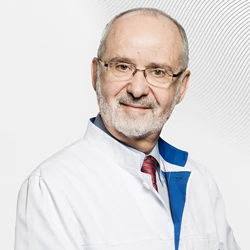
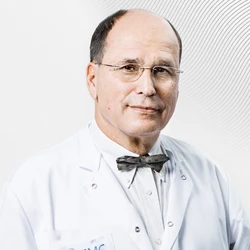
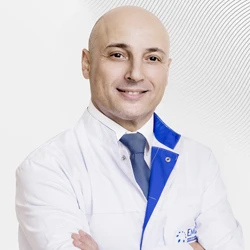
.webp)

